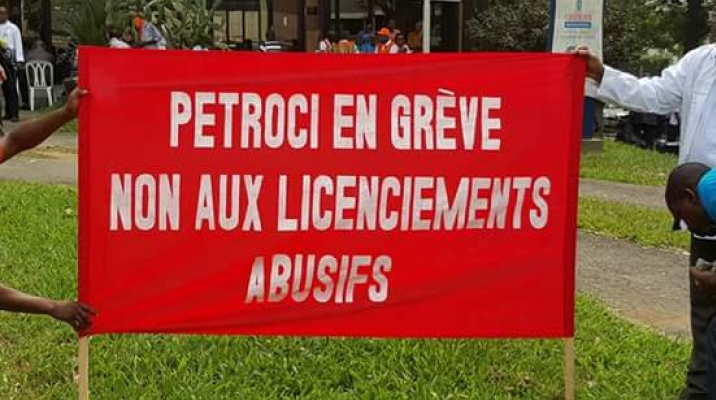20 July, 2017The oil industry in the Ivory Coast is rife with examples of union bashing. Workers at Libya Oil, Petroci and Klenzi face retrenchments, reduced benefits, job insecurity, harassment and threats of dismissal if staying in the union.
Libya Oil, which operates in 18 African countries, the Island of Reunion, and the United Arab Emirates, cited economic reasons for the recent retrenchments of eight workers. IndustriALL affiliate SYNTEPCI says that Libya Oil is not only ignoring but refusing to update an agreement signed in 2008. Workers’ rights were also ignored, and the reasons given for the retrenchments were unjust and misleading.
SYNTEPCI has approached the Minister of Labour, Jean Claude Kouassi, and the National Council of Social Dialogue, for the retrenchments to be reversed.
A three-week strike, the third in two years, against privatization at the state owned National Oil Company of Ivory Coast, Petroci, ended on 18 July. With no social plan to protect jobs, workers feared that Petroci’s proposed privatization would leave them worse off.
However, an agreement was reached, and wages for workers with more than ten years experience will be reviewed and the rights of the 13 workers transferred to a private company, Puma Energy, after the sale of petrol stations, protected. Working conditions for precarious workers will be discussed, as well as health insurance, pensions, and housing for workers. Packages paid to 48 workers retrenched in 2016 will be reviewed.
At Klenzi, a fuel distribution company, there were blatant violation of the rights to organize, and shop stewards were not recognised. Management, which refused to meet the union, openly harassed workers and threatened them with dismissals if they remained union members. Other grievances included the company’s failure to pay overtime, health insurance and pension benefits.
SYNTEPCI has written to the government, expressing its disappointment on how the labour ministry was dealing with the union bashing and trampling of workers’ rights.
Said Jérémie Wondje general secretary of SYNTEPCI:
“We wrote to the Directorate General of Labour on how badly they were managing workers grievances that we have brought to their attention. We told them that their failure to act was weakening our union.”
Diana Junquera Curiel, energy director at IndustriALL, says:
“We are calling upon Libya Oil, Petroci and Klenzi to stop attacking unions, and to instead engage in good faith dialogue and to work with them to resolve their grievances. Workers’ rights are protected by labour laws and international conventions that the Ivory Coast has signed.”
